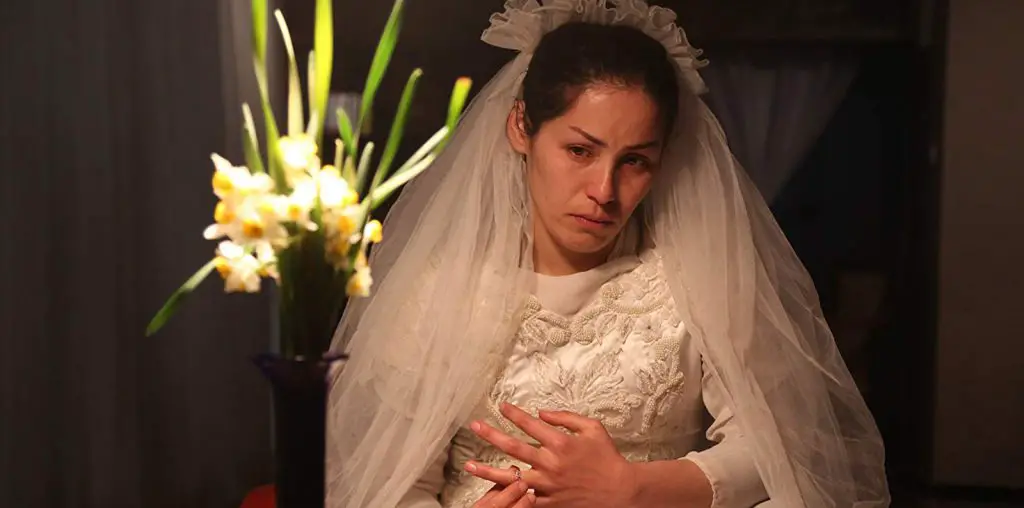
Kate S. Logan’s documentary, Kidnapped for Christ, starts off as a simple profile of a Christian behavior modification school in the Dominican Republic, Escuela Caribe. Parents pay the school to come and collect their unruly children, often in a stressful kidnap-style scenario, and take them to their school, where the children are reconditioned to become less disruptive. Then again, disruptive means different things to different parents, and some children are sent away for drug use, while others might have expressed a sexual preference of which their parents don’t approve.
As filmmaker Logan embeds herself in the school’s culture, she learns the individual stories of a number of students, and becomes a witness to an increasingly disturbing methodology of punishment and emotional abuse, all in the name of Christianity and the belief that the program will save these children and teenagers from a horrible fate down the line. Never mind that the school is manufacturing its own brand of life-altering horrors.
The school seems to ascribe to the “spare the rod, spoil the child” line of thinking, whereupon the best way to deal with these children and teenagers is a constant state of discipline and punishment. On the one hand, there are very clear guidelines about standards and behaviors that the students must follow to avoid such punishment. On the other hand, punishment often seems to be meted out randomly, and not necessarily in line with those guidelines. With solitary confinement and other questionable forms of behavior modification techniques utilized, without any sort of oversight, it’s often not a school, but a prison state.
In the case of David, that prison comparison becomes even more appropriate as he turns 18 during his stay at Escuela Caribe, and is still unable to leave, despite him being of a legal age to make the decision himself. The Dominican Republic supposedly conforms to U.S. law in this situation, but in practice not so much. As long as the school keeps making money off their students, their incentive is to keep them there for as long as they can.
And ultimately, isn’t that what it always comes down to, greed? While maybe, at some point, there was actually a motivation to try and help kids who seemed to be heading down a self-destructive path, it has since morphed into a massive money-making industry, with behavior modification “schools” all over the globe, with similar or worse conditions and “treatments.” It’s heartbreaking to think that parents would subject their children to these conditions voluntarily, and pay for the privilege, for whatever their reasons may be. In some cases, maybe they think they’re saving their kids from jail but, considering the reality for Escuela Caribe, they really just sent their kids to a different type of prison.
That said, as the film shows, not everyone who goes through this experience comes out screaming of the horrors. Some found it beneficial, and still others continue to work with the organizations as they grow older. It’s hard to fathom, but perhaps for some life before Escuela Caribe was worse.
Of course, there’s also the elements of cult methodology to consider. Removing someone from their environment, restricting or eliminating access to their friends and families, establishing a new family or hierarchy with strict rules for behavior, based on whatever line of logic or reasoning you’d like (Christian values or other ideology, for example)… these are in line with brainwashing and cult behavior. Is it so hard to believe that it could work, and thus reinforce itself over and over again?
Kidnapped for Christ, despite its provocative title, is not an indictment of Christianity so much as it is an exploration of, and bright light cast on, an industry that many don’t know exist. If this industry is to continue to thrive, and it likely will, there needs to be more of a concerted effort to keep tabs on it, and regulate some form of humanitarian standards. It can’t just keep being a well-paid punishment factory that churns out emotionally damaged victims, no matter how they dress it up.
Overall, this film will likely piss you off. Again, I had trouble grasping how any parent could think this is a good idea, and if they were made more aware of the exact conditions they were submitting their children to, perhaps they would think differently. The tragedy, for me, is perhaps it wouldn’t make a difference at all.
